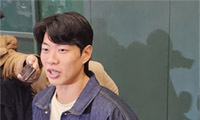“The end of French political power has brought the end of French,” Mr. Zemmour said. “Now even the French elite have given up. They don’t care anymore. They all speak English. And the working class, I’m not talking just about immigrants, they don’t care about preserving the integrity of the language either.”
Mr. Zemmour is a notorious troublemaker. Detractors have lately tried to get him fired from Le Figaro, the newspaper where he works, for his inflammatory remarks about French blacks and Arabs on a television show. In his view France, because of immigration and other outside influences, has lost touch with its heroic ancient Roman roots, its national “gloire,” its historic culture, at the heart of which is the French language.
Plenty of people think Mr. Zemmour is an extremist, but he is not alone. Recently, Nicolas Sarkozy, the French president, complained about the “snobisme” of French diplomats who “are happy to speak English” rather than French, which is “under siege.” French is now spoken mostly by people who aren’t French. More than 50 percent of them are African. French speakers are more likely to be Haitians and Canadians, Algerians and Senegalese, immigrants from Africa and Southeast Asia and the Caribbean who have settled in France .
So what does French culture signify these days when there are some 200 million French speakers in the world but only 65 million are actually French?
In Canada the Quebecers tried outlawing signs and other public expressions in anything but French. Basque separatists have been murdering Spaniards in the name of political, linguistic and cultural independence, just as Franco imprisoned anyone who spoke Basque or Catalan.
The fact is, French is thriving as never before, if you ask Abdou Diouf, former president of Senegal, who is the secretary general of the International Organization of the Francophonie . “The truth,” he said, “is that the future of the French language is now in Africa.”
There and elsewhere, from Belgium to Benin, Lebanon to St. Lucia, the Seychelles to Switzerland, Togo to Tunisia, French is just one among several languages. This means that for writers from these places French is a choice, not necessarily signifying fealty, political, cultural or otherwise, to France.
Different racial and ethnic groups in France have begun to argue more loudly for their rights and assert their cultures. The election of Barack Obama in the United States hastened the process, by pointing out how few blacks and Arabs here have gained political authority.
“The world has changed,” said Nancy Huston, a Canadian-born novelist who moved to Paris in the 1970s. “After the war French writers rejected the idea of narrative because Hitler and Stalin were storytellers, and it seemed naive to believe in stories. So instead they turned more and more to theory, to the absurd. The French declined even to tell stories about their own history, including the war in Algeria, which like all history can’t really be digested until it is turned into great literature. Francophone literature doesn’t come out of that background. It still tells stories.”
Yasmina Khadra is a best-selling Algerian novelist, whose real name is Mohammed Moulessehoul. A 55-year-old former Algerian Army officer who fought against the French and now lives in Paris, he writes novels critical of the Algerian government under his wife’s name, which he first borrowed because the military in Algeria had banned his literary work.
“I decided to become a novelist in French partly because I wanted to respond to Camus, who had written about an Algeria in which there were no Arabs,” he said. “I wanted to write in his language to say, I am here, I exist, and also because I love French, although I remain Arab. Linguistically it is as if I have married a French woman, but my mother is still Arabic.”
“Paris is still fearful of a French writer who becomes known around the world without its blessing,” Mr. Moulessehoul added. “And at the same time in certain Arab-speaking circles I am considered a traitor because I write in French. I am caught between two cultures, two worlds.”
MICHAEL KIMMELMAN
스마터리빙
more [ 건강]
[ 건강]이제 혈관 건강도 챙기자!
[현대해운]우리 눈에 보이지 않기 때문에 혈관 건강을 챙기는 것은 결코 쉽지 않은데요. 여러분은 혈관 건강을 유지하기 위해 어떤 노력을 하시나요?
 [ 건강]
[ 건강]내 몸이 건강해지는 과일궁합
 [ 라이프]
[ 라이프]벌레야 물럿거라! 천연 해충제 만들기
 [ 건강]
[ 건강]혈압 낮추는데 좋은 식품
[현대해운]혈관 건강은 주로 노화가 진행되면서 지켜야 할 문제라고 인식되어 왔습니다. 최근 생활 패턴과 식생활의 변화로 혈관의 노화 진행이 빨라지고
사람·사람들
more많이 본 기사
- 뚜레쥬르, 뉴욕 맨해튼에 직영 ‘매디슨 스퀘어 파크점’ 열어
- “트럼프 정부, 망명신청자 8천명 과테말라 등 제3국 추방 추진”
- 잇단 트럼프 때리기에도…파월, 지지율 3부 요인중 최고
- ‘마약 혐의’ 남양유업 창업주 외손녀 황하나 경찰에 체포
- 美, EU 전 집행위원 등 5명 입국금지… “미국 빅테크 표현 검열”
- ‘헉’ 오바마케어 보험료가 연 4만불… 3
- 허위조작정보근절법, 與주도 처리될듯…텅빈 본회의장 밤샘 필버
- ‘평양무인기’ 김용현·여인형 추가 구속…법원 “증거인멸 염려”
- 이하늬, 기획사 미등록 혐의 검찰 송치.. “10월 정식 등록”
- 해외서도 극과극 반응’대홍수’, 넷플릭스 글로벌 1위 차지”SF 걸작 vs 최악”
- 경찰, ‘통일교 로비 의혹’ 한학자·윤영호 오늘 2차 접견조사
- 과거 임기 제한 주장했던 동영상 논란
- “트럼프 행정부, 스페이스X에 동물보호구역 토지 양도 검토”
- [건강포커스] “모든 니코틴은 심혈관 독소…청소년 중독 방지 대책 시급”
- 대법원 “최종심 나올 때까지 시카고에… 1
- 미주한인경찰협회, 지역 고교생 4명에 장학금 전달
- 법무부, 엡스타인 자료 추가 공개… “전용기에 트럼프 8번 타”
- 탁 트인 전망과 불꽃놀이로 즐기는 PALMS CASINO RESORT의 올인클루시브 2026 새해 맞이
- 박나래, 논란 또 추가..이번엔 ‘나혼산’ 조작 방송 의혹
- 트럼프, GDP 호조에도 “금리 내려야…동의못하면 연준의장 안돼”
- 46회째 1등 안나온 파워볼 복권…당첨금 약 16억 달러로 껑충
- [새해 강화되는 노동법] 가주서 노동… 1
- 델라웨어 차량등록국서 총격…州경찰관 1명 사망
- 임윤아, 여우 주연상 쾌거.. “멋진 상 감사합니다”
- 조지아서 역주행 승용차 덮쳐 한인 등 2명 사망
- “ATM기 사용하기 겁나네”
- 중국 시온교회 목회자 체포… 미주 한인교계 등 ‘기도와 지원’
- 美, 카리브해로 특수부대 전개…베네수 작전 개시 임박했나
- ‘차량 링거’ 전현무 의료법 위반 고발당해… “적법한 진료” 해명
- 법무부, ‘반자동 소총 금지’ 워싱턴DC 상대 소송… “위헌”
- 中과 무역갈등 휴전한 美 “中반도체 추가관세 18개월간 보류”
- 이번엔 ‘먹는 비만약’ 경쟁…알약 위고비, 미국서 판매 승인
- 올해 워싱턴DC 식당 92곳 폐업…‘역대 최다’
- 이영지 맞아? 러블리 분위기 물씬..180도 달라진 ‘뼈말라’ 몸매
- 9세 영 아티스트 박리하 ‘2026 LA 아트쇼’ 참가
- ‘올해는 ICE 이민자 체포 광풍의 해’
- 공정위, 대한항공 마일리지 통합안 보완명령
- 트럼프 “국가안보 위해 그린란드 필요…우리가 가져야”
- 가족 얼굴 못 알아보고 성격 변한 부모님… “서양 기준으론 정상?”
- 워너브러더스 주주 “파라마운트 인수안 여전히 불충분”
- 송성문, 메디컬테스트에 초긴장 “혹시 뭐 나올까 걱정했다→미국 열심히 갔는데 맨손으로 돌아올까봐”
- 4인 가족 보험료가 4만불까지… 중산층‘불안’
- 올해 AI로 전국 일자리 5만5,000개 증발
- 한인 박찬영씨 교통시비 총격 사망...타코마중앙장로교회 40대 장로, 19일 레이시 도로서 참변
- ‘트롯돌’ 손태진, 오디션 우승상금 7~8억?.. “무서워서 1년 넘게 안 썼다”
- 연말 여행객 최다… LAX 공항 ‘대혼잡’
- [화요칼럼] 단호박의 온기
- 1,480원까지 돌파한 환율… “내년에도 고공 행진”
- 한인은행 신용도 ‘최우수’… 대다수 ‘별 5개’ 평가
- ICE 홈디포 급습 한인 체포
1/5지식톡

-
 미 육군 사관학교 West Poin…
0
미 육군 사관학교 West Poin…
0https://youtu.be/SxD8cEhNV6Q연락처:wpkapca@gmail.comJohn Choi: 714-716-6414West Point 합격증을 받으셨나요?미 육군사관학교 West Point 학부모 모…
-
 ☝️해외에서도 가능한 한국어 선생님…
0
☝️해외에서도 가능한 한국어 선생님…
0이 영상 하나면 충분합니다!♥️상담신청문의♥️☝️ 문의 폭주로 '선착순 상담'만 진행합니다.☎️ : 02-6213-9094✨카카오톡ID : @GOODEDU77 (@골뱅이 꼭 붙여주셔야합니다…
-
 테슬라 자동차 시트커버 장착
0
테슬라 자동차 시트커버 장착
0테슬라 시트커버, 사놓고 아직 못 씌우셨죠?장착이 생각보다 쉽지 않습니다.20년 경력 전문가에게 맡기세요 — 깔끔하고 딱 맞게 장착해드립니다!장착비용:앞좌석: $40뒷좌석: $60앞·뒷좌석 …
-
 식당용 부탄가스
0
식당용 부탄가스
0식당용 부탄가스 홀세일 합니다 로스앤젤레스 다운타운 픽업 가능 안녕 하세요?강아지 & 고양이 모든 애완동물 / 반려동물 식품 & 모든 애완동물/반려동물 관련 제품들 전문적으로 홀세일/취급하는 회사 입니다 100% …
-
 ACSL 국제 컴퓨터 과학 대회, …
0
ACSL 국제 컴퓨터 과학 대회, …
0웹사이트 : www.eduspot.co.kr 카카오톡 상담하기 : https://pf.kakao.com/_BEQWxb블로그 : https://blog.naver.com/eduspotmain안녕하세요, 에듀스팟입니다…
케이타운 1번가
오피니언
 조환동 / 편집기획국장·경제부장
조환동 / 편집기획국장·경제부장 AI로 가속화되는 노동시장 개편
 민경훈 논설위원
민경훈 논설위원‘크리스마스 캐롤’과 산타 클로스
 정재민 KAIST 문술미래전략 대학원 교수
정재민 KAIST 문술미래전략 대학원 교수 [정재민의 미디어풍경] 적과의 동침, 협력하며 경쟁하기
 김영화 수필가
김영화 수필가 [화요칼럼] 단호박의 온기
 김정곤 / 서울경제 논설위원
김정곤 / 서울경제 논설위원[만화경] 안중근의사 유해봉환 사업
 권지숙
권지숙 오후에 피다
 옥세철 논설위원
옥세철 논설위원말살되고 있는 유럽의 성탄절 전통, 그 원인은…

외로운 이웃들
 조지 F·윌 워싱턴포스트 칼럼니스트
조지 F·윌 워싱턴포스트 칼럼니스트 [조지 F. 윌 칼럼] MIT에 대한 트럼프의 무분별한 공격
1/3지사별 뉴스

‘연방하원 도전장’ 척 박 예비후보 후원모임
연방하원에 도전장을 낸 척 박(한국명 박영철) 예비후보 후원 모임이 지난 18일 열렸다. 척 박의 부친인 박윤용 뉴욕주하원 25선거구 (민주)…
‘경찰 무력사용지침 갱신 의무화’ 입법 초읽기

‘올해는 ICE 이민자 체포 광풍의 해’
올 한해동안 버지니아와 메릴랜드, DC 등에서 연방 이민당국에 체포된 사람이 1만명이 훌쩍 넘는 것으로 조사됐다. 또 미 전국적으로는 22만명…
“ATM기 사용하기 겁나네”

연말 ‘로드레이지’ 비극… 한인 총격 피살
연말을 맞아 도로 위에서 순간적으로 벌어진 운전 중 시비가 40대 한인 가장의 총격 피살 비극으로 이어졌다. 워싱턴주 레이시 경찰국과 서스턴 …
엡스타인 파일 공개 다음날 트럼프 사진 삭제…야당서 탄핵 경고

오늘 하루 이 창 열지 않음 닫기 























































.png)


댓글 안에 당신의 성숙함도 담아 주세요.
'오늘의 한마디'는 기사에 대하여 자신의 생각을 말하고 남의 생각을 들으며 서로 다양한 의견을 나누는 공간입니다. 그러나 간혹 불건전한 내용을 올리시는 분들이 계셔서 건전한 인터넷문화 정착을 위해 아래와 같은 운영원칙을 적용합니다.
자체 모니터링을 통해 아래에 해당하는 내용이 포함된 댓글이 발견되면 예고없이 삭제 조치를 하겠습니다.
불건전한 댓글을 올리거나, 이름에 비속어 및 상대방의 불쾌감을 주는 단어를 사용, 유명인 또는 특정 일반인을 사칭하는 경우 이용에 대한 차단 제재를 받을 수 있습니다. 차단될 경우, 일주일간 댓글을 달수 없게 됩니다.
명예훼손, 개인정보 유출, 욕설 등 법률에 위반되는 댓글은 관계 법령에 의거 민형사상 처벌을 받을 수 있으니 이용에 주의를 부탁드립니다.
Close
x